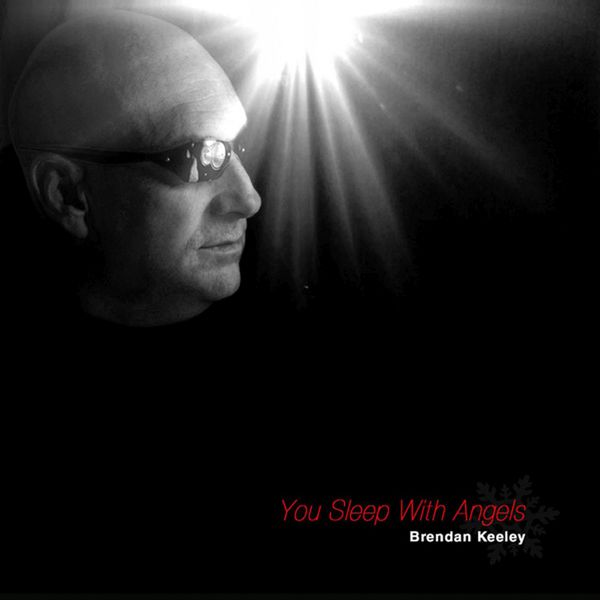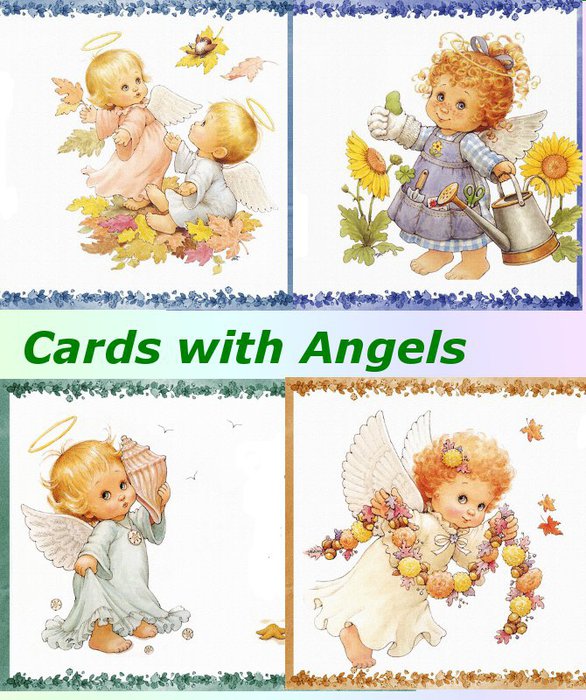Speaking with the angels
Speaking With The Angels - An Interview with Ron Sexsmith
Speaking With The Angels - An Interview with Ron SexsmithRon Sexsmith
King Tut's Wah Wah Hut
Glasgow, Scotland
Interviewed by Ross Thompson
The Canadian singer songwriter Ron Sexsmith has released five albums to date. Their names are Grand Opera Lane, Ron Sexsmith, Other Songs, Whereabouts and Blue Boy' This night, he and his band played a selection culled from all of these records, and teased us with a snippet of Destiny's Child's Survivor. His lyrics are poetic and his guitar playing is beautiful. That should be enough.
Ron Sexsmith has been making records for what seems like the best part of my life, and each album has improved on its predecessor. While he has experimented with other kinds of style and instrumentation, his music has always been based around strong songs, a tactic that many over-ambitious songwriters ignore.
One need only listen. There is the fragile delivery of Secret Heart, one of the earlier songs, or the sublime backing vocals on Thirsty Love, one of the most recent ones. Or Foolproof, which sounds like country music as sung by Chet Baker.
Sexsmiths lyrics have long fascinated me because they frequently allude to spiritual themes and concerns. For example, there is the song Strawberry Blonde, which superficially seems like a jaunty, poppy number. Underneath, however, it tells the story of a schoolgirl whose mother suffers from depression and eventual suicide. This compassion for the lost and the lonely in life is characteristic of Ron Sexsmith's writing. By writing songs about the weak, he is not only creating art, but also being charitable, turning the listener's attention to those who need help in our own community.
The conversation went something like this:
Tollbooth: I know that this is a rather inane question, but how did you get interested in music in the first place? Do you come from a musical family, or was it something that you picked up for yourself?
Sexsmith: My family wasn't very musical, but there was always music being played around the house. On the radio, records etc. I was just drawn to it. I loved to hear people sing. And I would try to mimic them.
On the radio, records etc. I was just drawn to it. I loved to hear people sing. And I would try to mimic them.
Tollbooth: You have worked with such diverse artists as Elvis Costello, Sheryl Crow and the Fountains of Wayne. I know that after your first record, Costello quite rightly sang your praises. How did it feel to receive an accolade from such a prolific artist?
Sexsmith: It helped a lot. My debut record was dying until he spoke up about it. It was also a huge and unexpected honor.
Tollbooth: What other artists would you like to work with?
Sexsmith: I'd like to work with Ray Davies, Beth Orton; I like Beck a lot too.
Tollbooth: Who would be your main influences, and who are your favorite musicians of the moment?
Sexsmith: Main influences, I guess would be artists like Bing Crosby, Buddy Holly, Ray Davies, Elton John, Charlie Rich. Currently, I'm really enjoying Elton John's new record and I've become a huge Eminem fan as well.
Tollbooth: If push came to shove, what would be your favorite Saturday night record?
Sexsmith: Chet Baker Sings.
Tollbooth: Sunday morning?
Sexsmith: Smiling Face by Davey Johnstone.
Tollbooth: One of the most noticeable aspects of you is that you often tell the stories of the quieter people in life: the man dressed as a clown, the boy asking his father about the cemetery, the Idiot boy, the strawberry blonde girl whose mother takes her own life. I think that this perspective shows a real affection and empathy for those who have a rough deal. Where does this approach come from? Are you interested in such characters?
Sexsmith: Well, I came from a poor background, and in many ways I'm still there. I'm also a huge fan of Charles Dickens who also wrote a lot about the underdogs of the world.
Tollbooth: Child Star is a particularly chilling song, reminding me specifically about the likes of Judy Garland, Shirley Temple and perhaps even Drew Barrymore. If you add that to Thumbelina Farewell on the new record, one could argue that you are quite skeptical of the entertainment business. Would it be fair to argue that?
Would it be fair to argue that?
Sexsmith: That could be true... I think when I first got signed I was quite naïve, like a lot of people who enter into this line of work. But I think there really is a cruel, tragic side to it that we've seen time and time again. It was originally written for a child star named Dana Plato who was on a popular series when she was a kid and then wound up out of work, on drugs etc. She died a few years ago. I think she was only 35.
Tollbooth: Secondly, your songs often incorporate religious, if not Christian, phrases and imagery. Are you simply attracted to the language and wordplay of Christian writing, or do you have an interest in spiritual things?
Sexsmith: I would say my songs have a spiritual aspect not a Christian one. I was raised Protestant, and I love Christ and what he had to say, but I find that most organized religions of the world are always trying to make heaven seem like an exclusive club.
Tollbooth: Were you raised within a religious environment, or again was it something that you picked up for yourself?
Sexsmith: I had a very watered down religious upbringing so I've thought a lot about it over the years and came up with my own conclusions.
Tollbooth: Would you say you had a "faith" of any kind? (I realize this may be too personal a question, and if so I apologize) I guess I ask this question because I have a certain George Harrison quote revolving in my head just now: "The three questions that people ask are who am I, why am I here, and where am I going?"
Sexsmith: I don't really have a specific faith, though I do have a lot of faith in the idea and energy of God.
Tollbooth: In particular, I refer to the lovely song Speaking with the Angel, which has been covered by a wide variety of artists, both secular and Christian. I think the lyrics to that song are subtle yet profound, but who is speaking with the angel?
Sexsmith: I wrote it for my son, when he was 3 months old. My wife had said that babies can see angels, and that's why they make "baby noises". So, the song started there, and then it became a song about parenthood I guess.
Tollbooth: So, what does the future hold? Is there a new record on the way?
Sexsmith: I've just finished a new record that I'm really excited about. I'm hoping it'll be out next summer. It's probably my most spiritual record yet.
I'm hoping it'll be out next summer. It's probably my most spiritual record yet.
Can We Speak with Angels?
Audio Transcript
Welcome back to the Ask Pastor John podcast. Today we have an email from an anonymous listener: “Hello, Pastor John! All through the Bible we see angels speaking to believers. They speak sometimes in person and often in dreams. In that light, the worship pastor at my church recently mentioned to others that he had regular talks with one angel. I don’t see that dynamic so evident in Scripture — of ongoing conversations between believers and angels. It tends to be more of a monologue, mostly. Someone else in my church suggested the worship pastor is likely speaking to a demon!
“In APJ 1618, you addressed the ministry and purpose of angels today, but not how the angels interact with believers today. Do they? Are angels involved in our daily lives to this degree? Should we expect to hear from an angel? And would it even be possible to have an ongoing dialogue with an angel? Could a believer, claiming to talk with angels, actually be talking to a demon?”
Yes, it is possible that a person who claims to be talking to an angel may be talking to a demon. And the reason I say that is because the apostle Paul said in 2 Corinthians 11:14, “And no wonder, for even Satan disguises himself as an angel of light.” In other words, it’s part of Satan’s very nature that he’s deceptive and would love to distract the saints (at best), and delude them and destroy them (at worst), by drawing off their focus from Christ to angels. It is also possible that a person who claims to be conversing with angels is simply conversing with images or voices in his own head that are not in fact either demons or angels.
And the reason I say that is because the apostle Paul said in 2 Corinthians 11:14, “And no wonder, for even Satan disguises himself as an angel of light.” In other words, it’s part of Satan’s very nature that he’s deceptive and would love to distract the saints (at best), and delude them and destroy them (at worst), by drawing off their focus from Christ to angels. It is also possible that a person who claims to be conversing with angels is simply conversing with images or voices in his own head that are not in fact either demons or angels.
Four Reasons for Caution
But my main concern with people who claim to be conversing with an angel is not primarily that they are experiencing demons or hallucinations but that they are being drawn away from Christ and his provision of all that we need in our communication with God and our getting help from God. So, let me give four reasons from the Scriptures for why I think pursuing conversations with angels is a mistake.
Groping for the Supernatural
First, the Old Testament gives repeated warnings against turning away from the revelation of God revealed in Scripture through his appointed prophets to alternative means of communication with the supernatural. For example,
There shall not be found among you anyone who burns his son or his daughter as an offering, anyone who practices divination or tells fortunes or interprets omens, or a sorcerer or a charmer or a medium or a necromancer or one who inquires of the dead, for whoever does these things is an abomination to the Lord. (Deuteronomy 18:10–12)
Now, I know that angels are not listed in that group, but the question we should be asking is this: “Why is God so resistant to our seeking means of communication with the supernatural other than himself and his appointed means of discerning his will, his ways, and his character through his word by his Spirit?” The question is not simply whether that list in Deuteronomy is exhaustive. The question is, Why is it even there? And there seem to be at least two answers in the Old Testament context for why it’s there.
The question is, Why is it even there? And there seem to be at least two answers in the Old Testament context for why it’s there.
First, seeking to communicate with the supernatural in these ways puts us in the category of pagan nations who are constantly groping around for some medium by which they can find absolute truth so as to make life worth living. This is considered an abomination by God because of how badly it reflects upon God and his having revealed himself to Israel in his appointed ways, which is the other reason why these mediums are considered an abomination.
They don’t just put us in the category of pagan nations, but they give the impression that God’s not real, or that he’s begrudging in telling us what we need, or that he’s insufficient in himself to provide the truth we need to live by. So, I would say that there is good indication in the Bible that we should be very, very cautious about seeking out ways of communicating with the supernatural that give the impression that God and his provision of Christ and prayer and his word and Spirit are inadequate.
No New Testament Examples
Second, I would point out that in all the epistles of the New Testament, which give us guidance for how the church is to live, there are no instances of ordinary Christians or apostles conversing with angels. Now, I know that doesn’t amount to a prohibition, but it certainly does amount to a caution and to an indication that such conversations are not essential for maturity in Christ. Indeed, they may be a sign of immaturity because it takes certain measure of maturity to benefit fully from the beautiful paths of communication God has provided in his word, in prayer, and by his Spirit.
‘Not Holding Fast to the Head’
Third, listen to Colossians 2:18–19:
Let no one disqualify you, insisting on asceticism and worship of angels, going on in detail about visions, puffed up without reason by his sensuous mind, and not holding fast to the Head, from whom the whole body, nourished and knit together through its joints and ligaments, grows with a growth that is from God.

“When people begin to crave visions and to communicate with angels, something has gone wrong.”
Now, I can imagine that one person might respond to this text and say, “Nobody’s talking, Piper, about worshiping angels — just conversing with them.” Well, right, I know that, but here’s the point of the text: When people begin to crave visions and to communicate with angels, something has gone wrong with the way they are holding fast to the Head, Jesus Christ, and his all-sufficiency in nourishing the body of Christ, holding the body of Christ together, growing the body of Christ.
Paul is concerned not simply with people who are worshiping angels, but they’re replacing Jesus as the Head, esteeming angels more significant than the paths of nourishment and strength and help and encouragement that God has appointed through the Head, Jesus Christ.
God’s Open Throne
The fourth pointer away from conversations with angels, toward God, simply builds on what I just said in number three — namely, that God has provided such a precious, sure, and solid pathway to mercy and grace and help that it is an insult to him to act as though we need paths into the supernatural besides what he has taught in his word.
And I’m thinking here especially of Hebrews 4:14–16, which go like this:
Since then we have a great high priest who has passed through the heavens, Jesus, the Son of God, let us hold fast our confession. For we do not have a high priest who is unable to sympathize with our weaknesses, but one who in every respect has been tempted as we are, yet without sin. Let us then [in view of this amazing high priest that we have, in view of his amazing capacities to sympathize with us] with confidence draw near to the throne of grace, that we may receive mercy and find grace to help in time of need.

“It is an insult to God to act as though we need paths into the supernatural besides what he has taught in his word.”
Now, what the writer to the Hebrews is laboring to do here is help us feel the wonder and the solidity and the sufficiency of the way God has made mercy and grace available to us — namely, at the throne of grace (this is God’s throne, not angelic intermediaries), through the finished work of the great high priest, Jesus Christ, in prayer, by faith, with the help of God’s Spirit.
Maturity in Ordinary Means
So, for those reasons, I would strongly discourage anyone from seeking to communicate with angels. I would regard the claim that one does such a thing to be a mark not of maturity but of immaturity in thinking that something more glorious, more satisfying, more amazing, more helpful, could be found through angel conversations than through the glory of God’s word and prayer by the Spirit in the fellowship of God’s church.
Film Conversation with Angels (UK, 1985) – Poster-Movie
Film Conversation with Angels (UK, 1985) – Poster-MovieFilm
The Angelic Conversation (1985, UK), IMDB: 6.1
Provided by the User: Elena Produbnova
On the film in roles
Countries
genry, Drama
Directories
minutes 17 minutes0003Date of Output January 1, 1985
Age restriction14+
Actors
Paul Reynolds, Phillip Willyamson, Judy Dench,Derek Derek
15Derek Jarmen
He died in 1994 at the age of 52 years, films: 16
, films: 16,9000Edward II
1991, Historical
Caravaggio
1986, Biography
Wittgenstein
1993, Biography
Garden
Frame
0002 T.G.: Psychoral in heaven
1981, short
Sebastian
1976, historical
Blue
1993, biography
anniversary
1978, drama
Arya
1987, tragedy
on England for England for England for England. Farewell view
Farewell view
1987, Drama
W.In Requiete
1989, Drama
Both
1979, Drama
In the shadow of the Sun
1981, Avangard
Slan-Square, Own room
1981, Short
Pirated
1983, Short
See also Message to Man 2022 Film Festival Guide
Online Premieres of the Week: New American Horror Story, Peripherals, Alice Can't Wait
Film Premieres of the Week: Whirlwind, Corsage, Alien from the future" and "Middle Ages"
events
Create a unique page of your event at the Afisha
This is an opportunity to tell a multimillion -dollar audience about it and increase attendance
- Abakan,
- Azov,
- ,
- Angarsk,
- Angarsk,
- Angarsk,
- Angarsk,
- ,
- Armavir,
- Artem,
- Arkhangelsk,
- Astrakhan,
- Achinsk,
- Balakovo,
- Balashikha,
- Balashov,
- Elista,
- Engels,
- Yuzhno-Sakhalinsk,
- Yakutsk,
- Yalta,
- Yaroslavl
Read online "A Conversation with Angels", Yuri Yentsov - LitRes
Memories
From Danish Times
"Oh, poor Hamlet!" - the jester said,
and a cloudy tear fell on the gravestone of
.
On a black stone under the feet of
in ringing colorful shoes.
All this could have been, but maybe it was
in bygone gloomy ages -
such a meeting over the grave.
“Oh, poor sir, how is it,
and how did it happen,
that you are dead, but the fool is alive?
Tell me, I'm waiting for an answer!
And how could it happen only then,
like the old one suddenly young Hamlet,
becoming a sad shadow, came and
answered: “My misfortune,
and, perhaps, yours, Yorik, too,
that we only look like jesters...
God Triton looks like a toad,
and the stars in the heavens - to fireflies,
and we are only alive in the world until then,
while complaisantly and patiently
we play the role of fools.
March of the Conquistadors
(imitation of Kipling)
Forward beyond the blue forest,
tired of walking - run,
because the edge of heaven is near,
let the boots be knocked down
and let the flask be empty,
but in the blue sky
a barely visible star
intoxicates more than rum.
Let it sweat under the cuirass
old silk shirts,
look bold, shooter,
because the horn has not yet ceased.
Behind a thousand winds
your father's house remains,
your long journey is harsh,
but it is in you.
Hold your musket straight,
because the end of heaven is near,
you will find the answer there,
why are you here now.
Perhaps fate threatens
to interrupt your glorious path,
to heaven near
you are doomed to look,
or maybe the horizon
will again retreat into the distance,
and with it the target will leave,
but the path to it is not a pity.
And through all obstacles,
through the arrows of savages
to the cherished lane
Hurry, Hurry, Hurry!
Ballad of a knight, a lord and a vassal
You are true to yourself and do not cry,
clutching a heavy hilt,
with diamonds of easy luck,
for which
the holy Palestinian trophy was carelessly spent.
Conceals red hood
a face dear yesterday,
with whom the foundations were overthrown,
with whom we met again
in the company of his axe.
He used to hold my stirrups with his faithful hand.
They didn’t know better than a soldier,
but now, rich in heads,
the country looks at the scaffold.
The handkerchief waved lonely,
so the smoke disperses and sleep,
the eye closed in the slot,
maybe someone will scream, but only,
not me, and not you, and not him.
Memory
Provence. French without pronunciation
slightly distorted Latin
and Vikings - shoulder to shoulder
- a slightly hoarse syllable.
A little Moorish - a little,
and something from the blond Spanish women,
and - Old Russian. Why? I do not know.
And, however, maybe the similarity is accidental.
But what is natural is
that I entrust sounds with a sign,
time-spoiled words
of Slavonic speech.
However, it would be easier
for me to speak someone else's,
in another dialect.
Who will explain this desire to me?
Maybe he is happy,
who sees the undoubted difference
and the difference of languages, paths and paths,
and is glad to follow his native path,
and not rush about like I rush about,
listening to the sounds,
I am.
And these sounds disappear in the noise of the wind,
when the fog disperses,
And morning dreams - together with the fog.
And the morning dreams are carried away by the fog
somewhere in a gloomy forest ravine,
And now the castle of the Count of Poitiers has become accessible to my sight
.
He himself rides through the meadow,
without retinue, a falcon on his arm.
And, unnoticed by anyone,
I leave the damp forest:
- How did you sleep, Count?
- Oh, it's you, I'm glad to see you, de Born
You see, the Lights of St. Elbe!
And they mean - something will happen,
fiery birds sat on the yards,
to all gunners: we turn the shooting!
To all commandors: wicks overboard!
and gunpowder with them overboard, overboard!
You hear the familiar sulphurous smell -
the devil has lit our ship like a fuse!
The battle is over and in the storm wave
the dead sail will flash for the last time,
we are not alone, but with the devil for a couple,
and we swear allegiance to Satan!
And he nicely decorated our masts
with his coldness with his cold gloomy fire
and the needle on the compass trembled,
which means we will reach somewhere.
And this means: we are alive today,
and again under the flag of the old corvette
tomorrow we will see the first ray of dawn,
the trade winds and the straits are waiting for us again.
Observations and Reflections
Station Guitar Sonata
Where does this desire to change places come from
and what is driving you, carrying you around the world?
Yesterday you were somewhere, and today it's
and you quickly forget this "somewhere".
Why? Why this change of place?
Here and there we hear your tunes,
perhaps, a crazy mixture of blood
calls you, and you set out on the road.
What does wanderlust mean?
You are probably looking for something on the planet,
but you can even climb into the clouds,
you will not stun anyone with this.
An empty desire to change places,
it will probably get bored very, very soon
, wildly tired,
and you will forever forget the call of open spaces.














